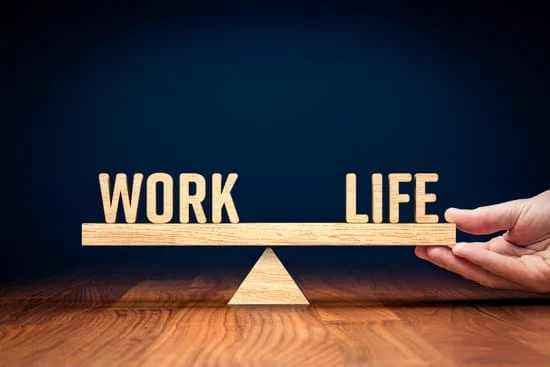“There’s only one outcome of work-life balance—it’s that you are out of balance.” Jeff Harmon
Nearly every single one of my clients have a similar wish: Greater work-life balance. The actual term “work-life balance” first appeared in the U.K. in the 80’s as an element of the Women’s Liberation Movement and has evolved over the last 40 years to be a gender neutral way of looking at how working people manage time spent at and outside of work.
Work-life balance is nearly an impossible proposition. Digital integration, which has been amplified even more by the work-from-home requirement set upon us by COVID-19, encourages an “always on” culture blurring the line between work and personal life. This digitally integrated working culture is inherently out of balance, which makes the concept a losing battle. On top of that, trying to find “balance” often creates more stress and anxiety than being out of “balance” in the first place.
So should we focus on work-life integration?
In the face of the near impossible task of creating balance, many professionals are calling for work-life integration in lieu of work-life balance. They argue that by removing the boundaries separating work and life, the two domains can be integrated seamlessly. While someone who focuses on creating work-life balance may set a time where they stop working every day to ensure they have enough time for life’s pursuits, someone focusing on work-life integration may leave work early to go to their child’s softball game and reply to work emails between innings.
My friend Chris Heim prefers this approach, and for the most part, I agree. When we eliminate the black and white lines that come from thinking in terms of balance, we see life as a whole, rather than two sides of a scale that’s eternally off balance.
Check out this video where Chris explains his approach to this.
It’s not as simple as substituting a word.
There is a risk here. Work-life integration can easily become another version of work-life balance that doesn’t actually solve the problem.. It’s still based on the idea of two separate domains — work and personal lives — and a time tradeoff. The only material difference between work-life balance and work-life integration is that with integration, the two domains are expected to intermingle and increasingly overlap. In fact, work-life integration may fuel the sense of imbalance even more because employees feel as if they have to be “always on.”
It’s not as simple as substituting a word, you can do work life- integration badly, and feel all the guilt and anxiety that comes along with that.
What’s required here is something much deeper and more profound.
People place a much larger importance on work than they should. We generally have a lot of our identity and value wrapped up in it. We created stories, especially in western culture, about what work means, and we give it a disproportionate level of importance compared to everything else.
Organizational psychologists use the term “enmeshment” to describe a situation where the boundaries between a person and their work become blurred, and the work takes on a disproportionate level of importance.
The solution here is to understand your relationship to work.
Understanding Your Relationship to Work
Many people have a convoluted view of what work is and what it means, and what it means about us. When we’re unclear on this, an imbalance will remain whether we use the word “balance” or “integration”.
It’s not really about the word, It’s really about taking a look at the reasons why we are doing it.
For all of us, there’s something about our relationship to work that drives our behaviour in one way or another. What lens are you approaching it with?
Here are some questions to begin to understand if:
- How much do you think about your job outside of the office?
- Is your mind frequently consumed with work-related thoughts?
- Is it difficult to participate in conversations with others that are not about your work?
- How do you describe yourself? How much of this description is tied up in your job, title, or company? Are there any other ways you would describe yourself?
- Where do you spend most of your time? Has anyone ever complained to you that you are in the office too much?
If these questions cause you to worry about the degree to which your job has influenced your identity, there are things you can do to initiate change.
Start with getting to the root by answering the “5 Whys.” Take one of the questions above that caused you concern and ask yourself, “Why?” With your answer to the question, ask yourself why that is. Do this four more times. By the time you get to the fifth “why,” you should have a hard time coming up with something and means you’re getting to the heart of why you are having a hard time balancing or integrating work and life.
It can be helpful to do this with a coach or trusted partner and answer the question, “now what?”
How to Help Your People
You can help your team through this process too. Find a way to support people and to right-size their perspective on their relationship to work. You may find that they believe you expect them to approach their work in this way. This will be an awesome opportunity to help correct their view of what you expect.
If your people have a healthy perspective on what work is, their identity does not rest on whether they work weekends or check their phones 24 hours a day — that person is going to be happier, more productive and more engaged, and ultimately do a better job.
Got questions? Leave them in the comments below and if you want help with this, click here to reach out to me.

